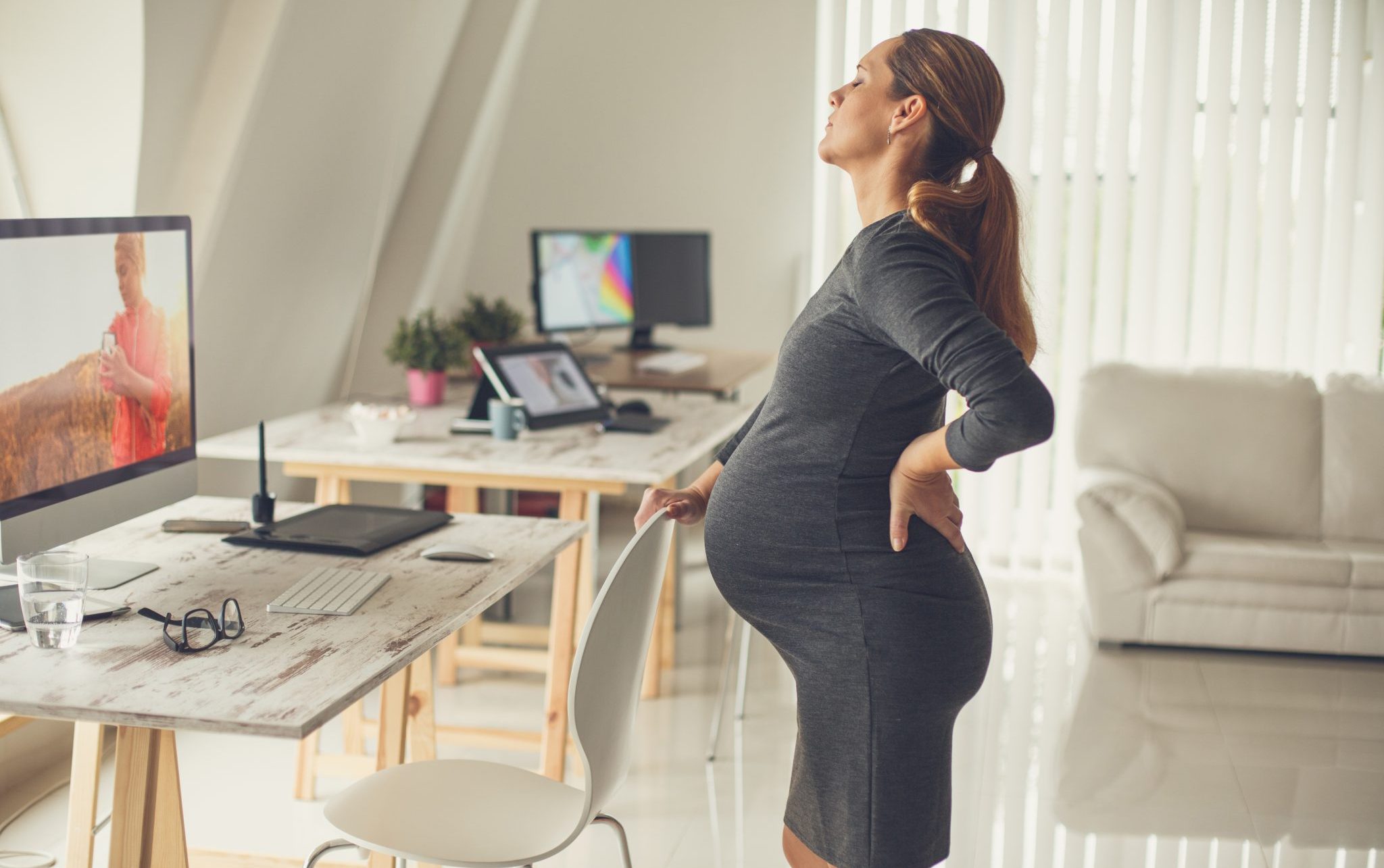Any ache or pain during pregnancy can leave you worrying until your next doctor’s visit. As your body grows and changes, you can be left wondering what’s normal and what’s not, and this feeling doesn’t disappear after your first pregnancy, second-time+ mothers may experience new symptoms along the way. What is important, however, is knowing what the pain is and what to do about it. Right now, we’re going to look at one of the most common types of pregnancy aches – round ligament pain and discover more about what it is, why you have it, when to worry and what you can do about it.
Round ligament pain when pregnant – what is it?
A sudden sharp pain, around your lower abdomen or groin area that can leave you gasping, round ligament pain during pregnancy is a common symptom in the second trimester, affecting 10-30% percent of the expectant population.
While it can be quite a shock to the system – where it that twang come from? Why is it so sore? – Usually, it isn’t anything to worry about. You might start to experience symptoms from your second trimester onwards. Round ligament pain in early pregnancy (first trimester) is rare, so it may be best to look for an alternative explanation for those twinges.
If you need to differentiate between this and other pain, round ligament pain comes with a sharp, stabbing pain in the lower abdomen/groin area on one or both sides. This will often feel worse with movement and generally comes on suddenly.
Why does it happen?
Generally, the ligaments that surround and support your uterus are tight, firm, and flexible, allowing for movement but usually holding everything in place.
Then comes pregnancy, as your uterus expands to make room for your little one, those ligaments have a lot more work to do. They expand and stretch, like an elastic band being stretched to try to keep everything in order.
However, sometimes, depending on how you move – sitting, standing, walking, coughing, sneezing, or even laughing – these ligaments can experience extra strain and cause you pain.
But, does that mean I just have to sit during pregnancy and do nothing? Of course, not.
While we do recommend taking extra care – no contact sports, extreme challenges, no rodeo – there’s no reason not to live a full and healthy life while you’re nourishing that little wonder. Just be careful.
How do I stop round ligament pain?
Most aches will go away on their own after a little while, so there’s no need to rush to take any painkillers for the ache. If it does not go away by itself and persists, you may consider getting in touch with your healthcare provider as an alternative factor could be at play.
As usual, the best solution is prevention. To lessen the chances of this particular twang, you can try some of the following remedies:
- Prenatal yoga
- Warm baths (but not too hot)
- A hot water bottle or heat pad
- Using a belly band or support tape
- Moving more slowly and not making sudden movements.
Alternative pains and when to see a doctor
While round ligament pain is common, it’s not the only aching condition afflicting expectant mothers. Before trying to treat it, get in touch with your doctor and try to establish what the underlying pain is. Here are some of the most notable reasons:
Diastasis recti
Another common ailment (affecting 60%) during gestation is abdominal separation or diastasis recti. Feeling like one of those sore stretching pains during pregnancy, diastasis recti usually happens in your second and sometimes the third trimester and may feel like anything from a stretch to actual pain, but the ache usually doesn’t last long. Unfortunately, there’s no how to relieve stretching pains during pregnancy of this type of solution. As your body is changing to make room for your little one, it is one of those things that just might happen. Those ab exercises are a big no-no, right now, but afterward (once you have the all clear), you can begin to rebuild and repair those muscles.
Constipation
Especially during the early stages of pregnancy as your hormone levels rise, you might experience constipation. Deeply unpleasant and uncomfortable, constipation is, generally, nothing to worry about. After the first trimester (past 14 weeks) it should resolve on its own with the help of a healthy diet with plenty of liquids, fiber, and vitamins, but if you need some relieve in the meantime, you can consider stool softeners or laxatives (per your doctor’s recommendation).
Infections
A dull twinge in your lower back, a pang in your stomach, and you can’t seem to find the cause? Now might be the time to take a urine test. Urinary tract infections (UTIs) are not very comfortable but affect between 2 and 10% of pregnant women. You might notice the pain described above, a burning sensation while you go to the toilet, the need to pee frequently or cloud/blood-tinged urine; all of these are signs you need to get tested. Or, you might have no symptoms at all and only become aware during routine testing. Once you know, it’s important you inform your doctor, depending on severity, they may recommend letting the infection treat itself or a course of antibiotics.
Cramps and other pains
A miscarriage, an ectopic pregnancy or a simple stomach ache, distinguishing what is causing that twinge in your belly can be a massive worry. Of course, seeking treatment as early as possible is ideal, but no one wants to be known as a hypochondriac. During pregnancy, it’s best to err on the side of caution and take any severe stomach tweak seriously. Miscarriages are more likely during the first trimester of pregnancy, while ectopic pregnancies are usually discovered in your 12-week ultrasound, if not before. Meaning if you haven’t quite hit that 12-week mark and are concerned, it’s best to get in touch with your healthcare provider immediately.
This is especially vital if you have the following symptoms:
- Bleeding from your vagina or a brown discharge
- Fainting or feeling dizzy
- Pain that is long-lasting or comes and goes regularly, like labor.
While you can breathe a little easier after this marker and in your second trimester it’s more likely to be gas that something to be concerned about, we can’t say it enough, contact your doctor, if you are worried.





